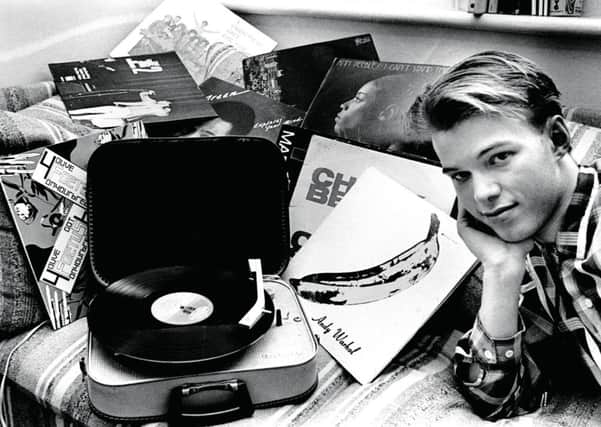The rise and fall of Glasgow’s Postcard Records


Now the story of Postcard Records’s role at the forefront of the 1980s indie music revolution has been compiled in a book, including the announcement that they had signed David Bowie’s son, Zowie, enlisted Barry White to produce a single by Aztec Camera and recruited singer Sheena Easton to the label.
None of the claims were true, but Postcard founder Alan Horne and creative partner Edwyn Collins nevertheless generated excitement throughout the industry and turned the Glasgow-based label into one of Britain’s most interesting ventures.
Advertisement
Hide AdIn the two short years they ran the label, Horne and Collins launched the latter’s band Orange Juice, Roddy Frame’s Aztec Camera, cult Edinburgh act Josef K and Australian band The Go-Betweens. But they were also so chaotic that they kept their business paperwork in Horne’s sock drawer.


There were hits, but also misses: meeting Velvet Underground icon Nico to discuss recording a song only to find she was a taciturn drug addict, who bad-mouthed them to the press; failing to sign Laurie Anderson and her smash hit O Superman, and rejecting Claire Grogan’s band Altered Images, who went on to have a hit with Happy Birthday and five more top 40 records.
The story of how Horne and Collins recorded the “Sound of Young Scotland” is being told for the first time in Simply Thrilled: The Preposterous Story of Postcard Records by Simon Goddard.
Published later this month, to coincide with the 35th anniversary of Orange Juice’s first official gig at Glasgow School of Art’s Haldane Building on 20 April, 1979, the book chronicles the creation of Postcard and its sudden demise.
Goddard reveals that Postcard’s life could have been even briefer. Collins and Horne almost came to a sticky end after plugging their records in London; on the journey home, the windscreen of their ancient Maxi shattered on the M1, forcing them to drive in the dark while being battered by rain and hail.
Despite only 14 official record releases and a handful of “apocryphal” ones, Postcard Records influenced the likes of Teenage Fanclub, Primal Scream, Franz Ferdinand and US band The Drums – and provided a model for a host of small Scottish labels.
Advertisement
Hide Ad“The music they produced was great, first and foremost,” says music critic Fiona Shepherd. “It gave a voice to a generation in Glasgow, as well as an alternative to what was going on at the time.”
The name came from a set of shellac postcard records found at Paddy’s Market. Glasgow’s flea market is also where Horne and Collins found much of the tartan kitsch that inspired the records and image.
Advertisement
Hide AdPostcard was created to launch Orange Juice’s first official single Falling and Laughing. When it failed to interest local record shops, Horne and Collins courted the London music press by ambushing journalists on the streets of Soho and forcing the single into their hands, including Radio 1’s John Peel. Horne shoved a record into the hand of the indie music DJ, saying: “This is Orange Juice, from Glasgow. All those Manchester bands you play, it’s all a nice bore.” The hype worked. Orange Juice’s single got airtime from Peel, and became Melody Maker’s Record Of the Week.
The book, published on 19 April – Record Store Day – also recalls that Horne did consider allowing The Associates’ Billy MacKenzie to record and release a cover of the Cadbury’s Flake “crumbliest, flakiest chocolate” jingle for the label.
Shepherd said that one of defining facets of Postcard was its tendency to overreach its grasp: “It was ambitious, but it could be quite disorganised. They had big ideas, but they couldn’t quite translate this into a long career as a label.”
For Bruce Findlay, the former Simple Minds manager who ran Zoom Records during the 70s, Postcard’s short lifespan was part of being a small label. Eventually their bands moved up, or imploded, like cult heroes Josef K.
“Postcard were a stepping stone for its bands. The Postcard legend was even bigger than the label itself – probably because they had great publicity.
“They shouted the loudest, and for a while they were the trendiest of the labels.”
• Simply Thrilled: The Preposterous Story of Postcard Records by Simon Goddard (Ebury Press, £16.99)